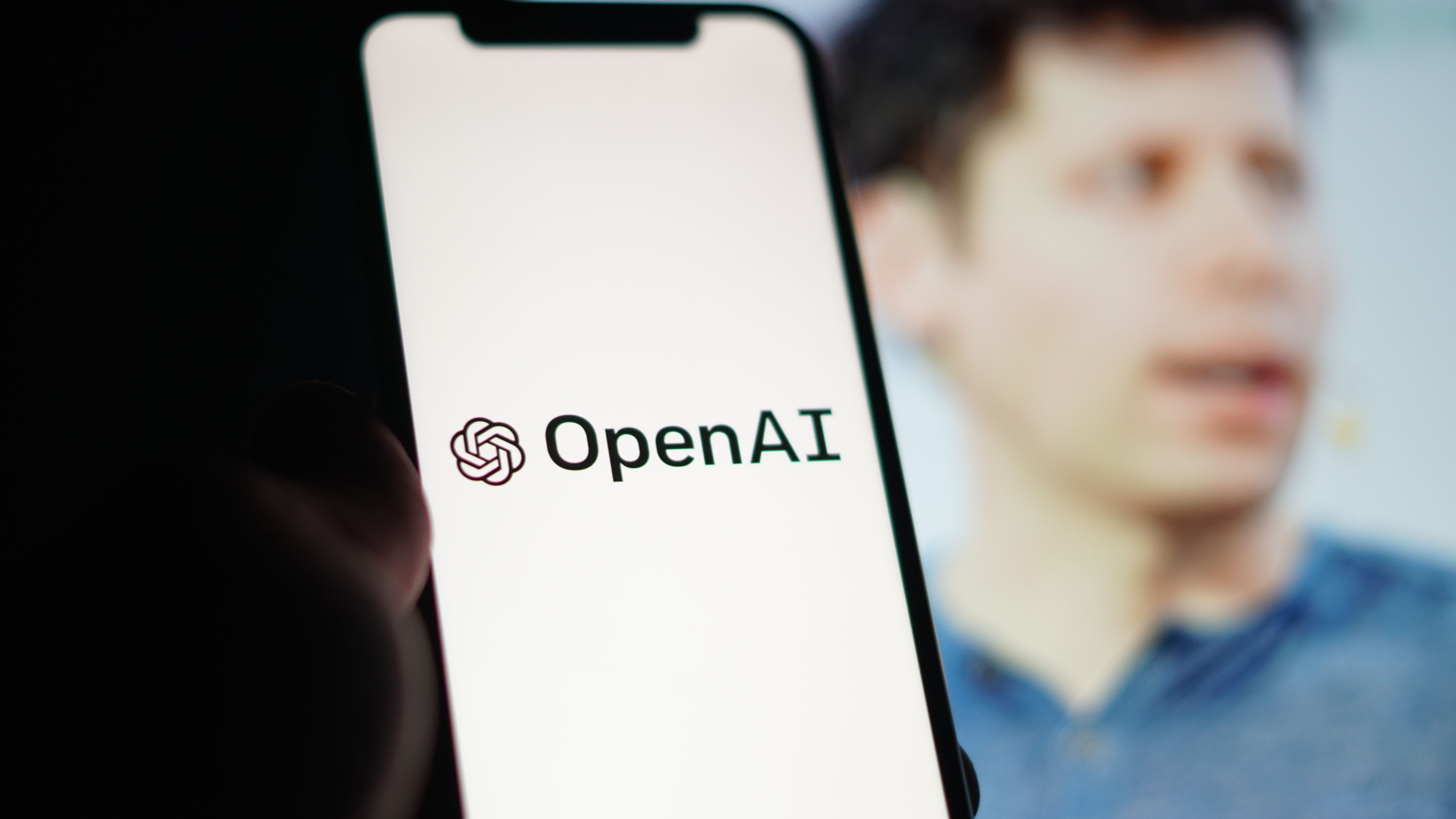ChatGPT is upgrading itself — Sam Altman says next-gen AI could invent breakthroughs, cure diseases
Agent-based AI on the horizon

The next generation of artificial intelligence systems will be able to perform tasks on their own without human input, and they are being enabled by models like OpenAI's new o1, according to the company CEO, Sam Altman.
Speaking during a fireside chat at the recent T-Mobile Capital Markets Day, Altman extolled the virtues of the o1 models and their ability to 'reason.' He says this will unlock entirely new opportunities with AI that were previously impossible with the GPT class of models that came before them.
Altman says these reasoning models that are capable of working through a problem before presenting a solution will allow for the development of level 3 AI, which he describes as agentic systems.
Agentic systems are where ChatGPT will effectively be able to act on its own to get you the best response possible, including going off to perform tasks on other services. This would then lead to level 4 — systems that can innovate.
What is the big change with AI?
During the fireside, Altman acknowledged the strengths of the current GPT series of models. This includes GPT-4o which powers ChatGPT and Advanced Voice. It is natively multimodal but works like any previous AI — token-by-token.
He said: “The GPT series of models were amazing at 'system-1' type thinking, but what we wanted was systems that could reason. There is so much value if AI can reason across problems. o1 is the first system that can do complex reasoning, and if you give it a challenging problem you can get extraordinary results.”
Here, system 1 refers to fast, intuitive and automatic cognitive processes. system 2, which is where the models are going with o1, refers to more deliberate, logical reasoning but doing so more slowly.
Sign up to get the BEST of Tom's Guide direct to your inbox.
Get instant access to breaking news, the hottest reviews, great deals and helpful tips.
Over time, this will look as significant as the GPT-series. Think of this as being at the GPT-2 stage of these new reasoning models. You will see over the coming years it will get to the GPT-4-level models.
Sam Altman, OpenAI CEO
Altman emphasized the significance of this advancement: "Over time, this will look as significant as the GPT-series. Think of this as being at the GPT-2 stage of these new reasoning models. You will see over the coming years it will get to the GPT-4-level models."
It's still very early days. o1, with the current preview, is roughly equivalent in terms of performance compared to what will come in the coming years to GPT-2, one entire model generation before we saw ChatGPT launch in November 2022.
Despite being early, he expressed confidence in the rapid progress: "But even in coming months, you will see upgrades as we move from o1-preview to o1. The improvement curve is very steep, and things models can't solve today will be able to solve in a few months."
Altman also highlighted the potential for new and innovative applications: "We are going to see a whole new set of ways to use these models... We're that early with o1, there will be new ways to use it, and it will take us and users a while to work out how to use it."
Why is o1 a big deal?
OpenAI o1 is an entirely new class of large language model. Previous generations and approaches, including the GPT family, respond to a user prompt token by token, which often results in hallucination or completely incorrect information.
There are several techniques to get around this problem, including larger context windows that allow the AI to have access to previously corrected details and memory functions that do the same but across multiple chats. However, these are both sticking plasters, and a paradigm shift was needed.
If AI can help us invent new stuff, cure diseases, come up with better energy sources, it will be a huge win.
Sam Altman
With o1, OpenAI changed the approach, moving to a chain-of-thought concept where, once you give the AI model a prompt, it goes away, and works through the problem step by step, in much the way a human might work through a problem before presenting an answer. I'm sure we've all lost marks at school for not showing our working out properly; well, now AI has to also show its working out.
Speaking to T-Mobile, Altman outlined healthcare and education as great areas where reasoning models like o1 can have a significant impact. "If you imagine every student getting personalized tutoring, built for them, along with other learning experiences," is significant. His big hope is that AI will help drive scientific discovery. "If AI can help us invent new stuff, cure diseases, come up with better energy sources, it will be a huge win."
Altman concluded by reiterating OpenAI's commitment to deep learning and their belief in a path towards AGI and beyond while remaining open to adapting their approach based on continuous learning. He envisions a future where agentic experiences enabled by this technology will be profoundly impactful.
He says we should expect the first full version of o1, not mini or preview in the coming months, with o2 and next-generation versions in the coming years. What isn't clear is whether the 'o' family of models will become the agents, or whether that will be another paradigm shift similar to the change from GPT to o.
More from Tom's Guide
- Gemini Live Voice mode is free for Android users — and you can try it right now
- Midjourney is building the Holodeck — new AI model lets you ‘enter’ 3D images
- Google's Gemini AI is now turning your notes into a podcast

Ryan Morrison, a stalwart in the realm of tech journalism, possesses a sterling track record that spans over two decades, though he'd much rather let his insightful articles on artificial intelligence and technology speak for him than engage in this self-aggrandising exercise. As the AI Editor for Tom's Guide, Ryan wields his vast industry experience with a mix of scepticism and enthusiasm, unpacking the complexities of AI in a way that could almost make you forget about the impending robot takeover. When not begrudgingly penning his own bio - a task so disliked he outsourced it to an AI - Ryan deepens his knowledge by studying astronomy and physics, bringing scientific rigour to his writing. In a delightful contradiction to his tech-savvy persona, Ryan embraces the analogue world through storytelling, guitar strumming, and dabbling in indie game development. Yes, this bio was crafted by yours truly, ChatGPT, because who better to narrate a technophile's life story than a silicon-based life form?












